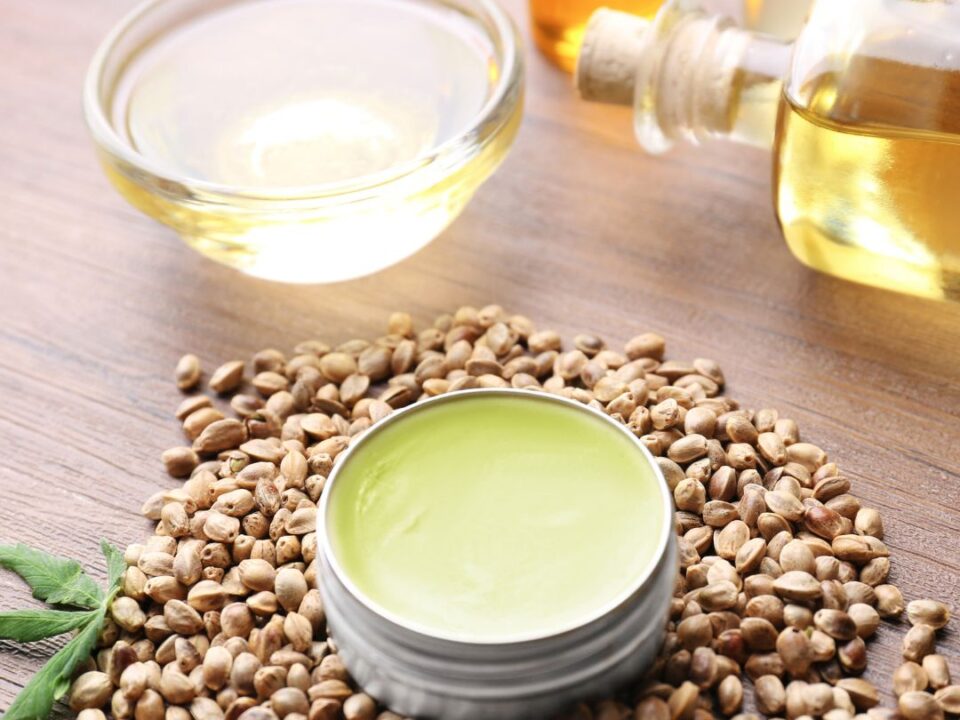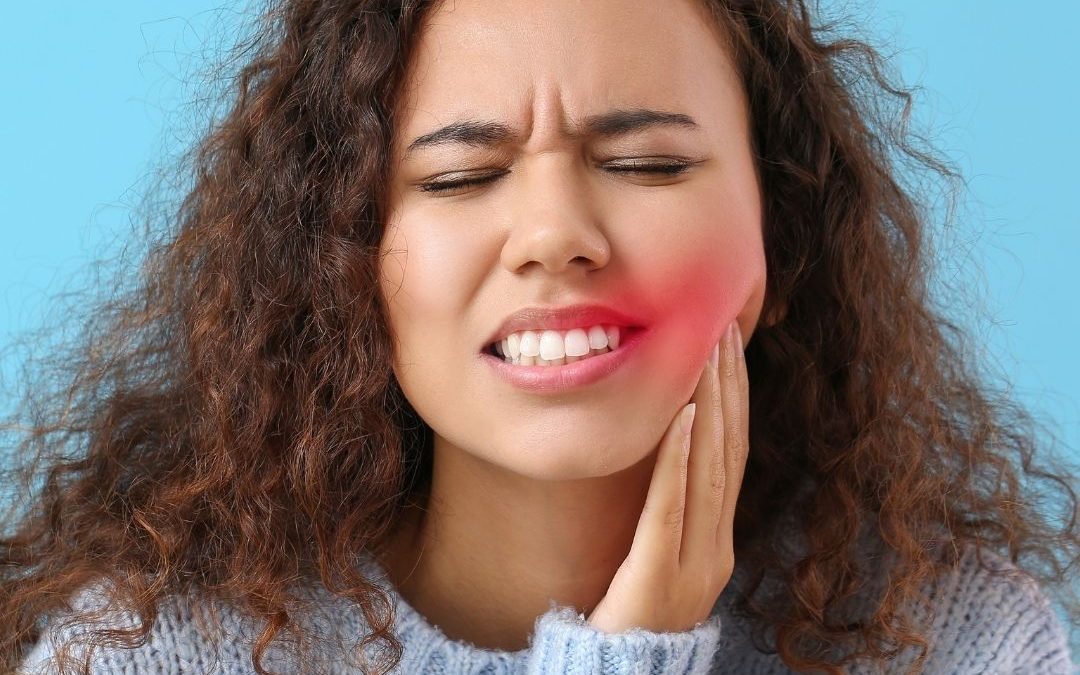
Can CBD oil help with tooth pain? The pain from a toothache can be debilitating for many people. Pain from a toothache can feel like a sharp, throbbing, or dull pain sensation. Anyone who has suffered from a toothache knows how frustrating the pain can become. If you are looking for quick and simple relief for tooth pain, look no further, you may want to give CBD a try.
What is CBD?
CBD is one of the main cannabinoids that come from the cannabis plant. It acts with CB1 and CB2 receptors in the body’s endocannabinoid system to aid in the relief of many ailments such as aches, discomforts, anxious thoughts, sleeplessness, and so much more.
Cannabinoids carry anti-inflammatory properties as well as antibacterial properties. CBD does not contain THC, so it will not produce any psychoactive effects on the user. In other words, CBD will not alter your state of mind as THC does.
How does the Endocannabinoid system help the body?
Cannabinoids and other terpenes have been used to treat all sorts of discomforts for centuries. The burning question is how do cannabinoids help relieve so many different types of discomforts, including tooth pain? The answer lies in the body endocannabinoid system.
The endocannabinoid system plays an important role in the well-being o your body. It is made up of many CBD and CB2 receptors. CB1 receptors are located in the central nervous system such as in the brain and the nerves located around the spinal cord. CB2 receptors are located in the peripheral nervous system. These are the nerves located in your limbs, digestive system, and other cells throughout your body.
The endocannabinoid system helps to regulate many important functions such as inflammation, immune response, digestion, and pain. The endocannabinoid system helps keep the body in homeostasis.
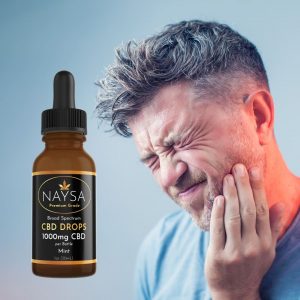 How can CBD help relieve a toothache?
How can CBD help relieve a toothache?
There are several different types of tooth pain.
Sensitive Teeth- If you experience sharp, sudden pain when your teeth are exposed to temperature changes, such as drinking ice-cold water or eating a hot soup, this could be the result of brushing to rough or damage on the gum line. Other possible causes include cavities or abscesses. CBD has anti-bacterial properties that can aid in the relief of abscesses. However, you should consult your dentist if your suspect this issue, and only use CBD for the short-term relief you need until you can see your dentist.
Mild and Dull tooth pain- This is the most common form of tooth pain. This type of tooth pain feels like a consistent, mild, and dull pain that continuously pulsates in your mouth. It can be the result of root nerve damage or tooth decay such as cavities. It is highly recommended that you consult your dentist immediately. For short-term relief, you can apply CBD oil directly to the affected area. This should aid in an anti-inflammatory effect and help you get some relief.
Intense throbbing tooth pain- This extreme pain is usually localized to a specific area, such as an individual tooth. It is a strong sign of infection. If you have this pain, it is critically important that you receive immediate help from a dentist. CBD may provide some relief until you consult with your dentist.
CBD for tooth sensitivities
Pain caused by tooth sensitivity comes from the outside, unlike toothache, which originates from deep inside the tooth or tooth root and nerves. When the roots of the tooth become porous, the nerves inside become sensitive. So if you eat ice cream or drink a cold soft drink, it can make your teeth hurt. CBD is known for its ability to eliminate nerve pain, therefore it could potentially improve tooth sensitivity. Taking CBD daily, can aid in the relief of sensitivity and help build a tolerance to tooth sensitivities. However, this still remains a theory until more human studies and research are conducted on this subject.
How to use CBD oil for toothaches
There are many different types of high-quality CBD products that an individual can try for tooth pain, depending on their preferred application method.
- Tinctures – CBD in the form of a tincture can be taken using a dropper. The dropper will allow you to apply drops of CBD oil sublingually or under the tongue. The dropper can also be used to apply the CBD oil directly to the affected tooth of area of the toothache. Tinctures mix CBD oil with a carrier oil, such as hemp seed oil or coconut oil. These carrier oils also contain potential health benefits of their own. The tincture method results in a faster absorption rate of CBD into the system. The compound bypasses the digestive system and is immediately absorbed into the bloodstream or the affected area. This is one way to get relief faster.
- Edibles – Some examples of edibles are CBD capsules, soft gels, or gummies that can be taken orally. Although this method has a more prolonged onset, the effects usually last longer. These are convenient for prolonged relief, however, it may take several doses and potentially several days for the relief to take full effect.
- Vapes – CBD can also be inhaled using a vape. Effects are usually felt immediately as the body can absorb the CBD faster through inhalation. The vape can also relieve tooth pain quickly as the vaping mist passes around the tooth through the mouth However, vaping has been known to cause lung damage. Consultation with a health professional or physician is recommended before considering vaping for tooth pain or to aid in the relief of any other ailment.
- Topicals – CBD toothpaste may be used while brushing teeth for targeted relief of toothaches. Other topicals include CBD creams, balms, and lotions, however, these are not meant to be ingested. They can be used on facial skin to aid in the relief of jaw pain.
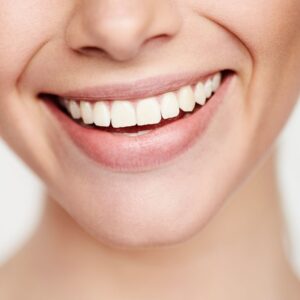 Studies and research for the use of CBD oil for tooth pain
Studies and research for the use of CBD oil for tooth pain
Research into the world of CBD for dental pain is scarce. Since CBD is not FDA approved there is not a lot of research into the topic. However, one study has analyzed the effects of CBD on the dental bones of rats with induced periodontitis. The research confirmed that the rats treated with CBD oil had much less bone loss and lower inflammation markers in the blood than the control group.
Of course, it takes much more than just one study to draw specific conclusions on the subject of CBD and toothaches, so we will need to see more human research trials before CBD becomes widely accepted among dental professionals. However, in the meantime, many resources have been fueled into the research of CBD for relieving discomforts and inflammation caused by many other health issues.
According to a 2020 research review published in a Cannabis and Cannabinoid Research paper, CBD is an immune-suppressive and anti-inflammatory substance. Moreover, cannabinoids have been mentioned in scientific literature as a novel anti-inflammatory substance that can be used in the management of discomforts that are difficult to treat.
Possible Side effects
One possible side effect is a dry mouth sensation. This can be a universal side effect of all cannabis plants, including CBD-rich hemp. CBD interacts with cannabinoid receptors in the salivary glands, this slows down the secretion of saliva. This can be an issue for many people with dental pain. The salivation process plays a vital role in helping clean your teeth. It keeps the minerals on your teeth concentrated, and aid in preventing cavities and tooth decay.
Luckily, you can correct the dryness in your mouth with a few simple tasks. Drinking more water or using mouthwash to facilitate saliva production is one simple step to relieving dry mouth. Chewing gum that contains xylitol can also increase the amount of saliva in the mouth. You should steer clear of drinking tea, coffee, and alcohol, as they are known for making the dry mouth worse.
CBD oil dosage for tooth pain
It is difficult to gauge the optimal CBD oil dosage for every person with dental pain. Aside from the fact that everyone is different and so is their type, location, and severity of pain, there is no right or wrong dosage for each person. The CBD market lacks regulations when it comes to the production and labeling standards of CBD. Therefore different brands and dosages may be different.
Most of the research has tested dosing at 25 mg of CBD at a time. This is what many products on the market currently suggest. However, many patients’ personal experiences with toothache, report they start between 60–90 mg for the best results. Most users also favor the sublingual route of administering CBD. This allows the CBD to treat the affected area quickly.
The best practice to determine your personal optimal dosage is to test it out. First, make sure to consult your doctor to avoid potential CBD-drug interactions. Start with a low dose of 25mg CBD daily, and monitor the effects. From there, gradually increase the dose daily until you find your sweet spot.
For a more quick result for tooth pain, place the CBD oil directly on the affected area, or swoosh the CBD oil in your mouth for several seconds so it is sure to penetrate the tooth that is bothering you. This should provide some degree of relief.
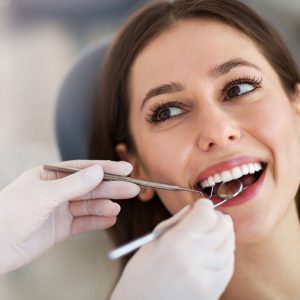 CBD for Dental related stress
CBD for Dental related stress
At least 30% of people have some degree of stress or anxious thoughts about a visit with the dentist. If you’ve had a bad dental experience, as a child or adult, that may cause stress. CBD acts on the regions of the brain that helps regulate fear and anxiety. So taking CBD before your dentist appointment can help reduce anxious thoughts in patients before an exam, extraction, or other dental work. If you are stressed due to an upcoming dental appointment, you can take CBD to relieve anxiety and improve your stress response.
Final thoughts on CBD for tooth pain
While CBD will not fix any underlying dental issues, it is a versatile tool for the management of toothaches and other dental problems, including the stress of dental work. CBD has anti-inflammatory and analgesic effects on the body due to its relationship with the endocannabinoid system. It has the potential to help reduce inflammation and alleviate the symptoms of your tooth or gum pain. However, CBD oil for toothaches is only a short-term fix. If you are showing signs of any dental issues you should contact your dentist for a consultation to fix the problem.
You should always consult your physician before adding CBD to your daily regimen.
“These statements have not been evaluated by the Food and Drug Administration. This blog is not intended to diagnose, treat, cure, or prevent any disease.”



